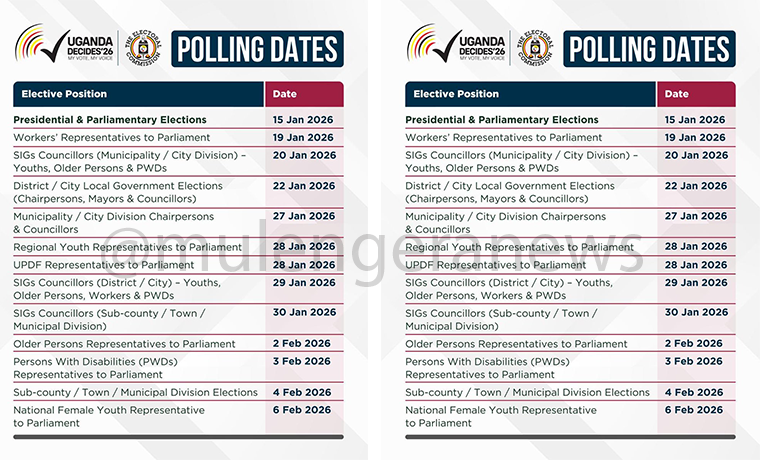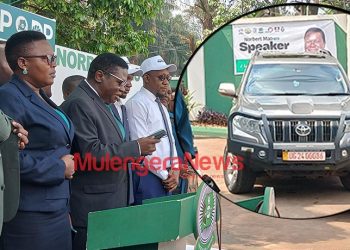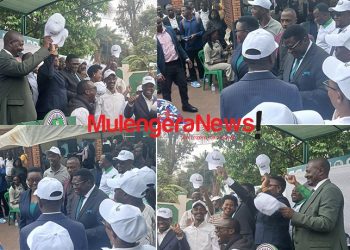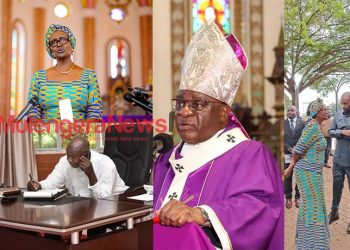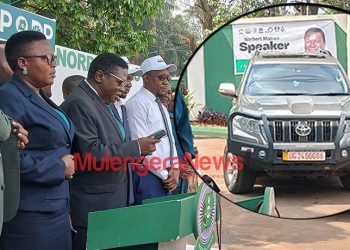By Mulengera Reporters
Former Minister Daudi Migereko (now a senior citizen in private sector) has called on government to protect local investors in especially iron and steel subsector who he says are being threatened and undermined by the dumping of cheaper steel products onto the market.
Speaking at National Planning Authority (NPA) last week where stakeholders converged to witness the launching of the EU-funded feasibility study into Uganda’s iron and steel industry, Migereko said GoU ought to reciprocate efforts of the local investors by unveiling a generous incentives package to enable them operate more cheaply given the subsector’s essentiality to industrialization which is to be the major theme under the upcoming NDP III.

He was fearful halting the development of the iron ore smelting plant in Rubanda Kabale district until the feasibility study is ready will hurt local investors in the steel subsector. Migereko said as the feasibility study is being undertaken along with other interventions, there is need for interim measures to protect local investors.

He for instance suggested provision of an incentives package to enable steel rolling plants to import coal cheaply as part of the strategy to enable them operate their installed capacity at full capacity. Of the installed total capacity of annually producing 1.2m metric tons, they are currently only utilizing half because of many factors including distortion of the market by foreign actors. Overcoming this will lead to more jobs being created and more forex being earned from exportation of steel products. It’s also good for government tax revenues.
Himself a former Minister for Energy & Minerals, Migereko said some quick thinking and decision-making must be undertaken to carry through the proposals he and others are making so that they are able benefit by supplying steel to upcoming very large projects that require steel as the major input.
Migereko gave the example of the oil refinery, the Standard Gauge Railway and others as some of the mega public infrastructure projects they must be supported to cash in on by being major steel raw material suppliers.

The former Minister (who some casually refer to as Mr. Local Content) said even policies like local content, requiring increased use of locally available input, will have more impact the moment the incentives and interim measures he is suggesting are undertaken.
He eloquently also asked the NPA leadership to use the ongoing thinking process into the NDP III to ensure the relevant policies and legislation are enacted to constrain the dumping of cheaper steel products in Uganda which diminish availability of market opportunities for local investors involved in the same sector. “This one can’t wait even for one day because many projects are ongoing and the major input is steel. It has to happen immediately, protecting the local investors against dumping or else local steel mills will collapse,” Migereko said.

Migereko, who is now vastly involved in private sector efforts, said broader thinking on things he was proposing must begin now and quick decisions made because acting imprudently could further constrain government efforts aimed at managing external debt and strengthening the Uganda shillings in comparison to the dollar.
Reflecting on actors like Tembo Steel Mills, East African Steel Corporation and Dong Song as some of the local investors trying their best to grow the steel subsector, NPA Board Chairperson Prof Pamela Mbabazi Kasabiti commended Migereko for his observations adding that “NPA must come up with proposals taking a position on the interim measures that must be undertaken.”
CLASHING WITH TOP ECONOMIST
However, Migereko’s views didn’t go down well with Marios Opona, a senior economist and consultant previously employed with NPA. Speaking the audience just like Migereko did, Opona said it was expecting for too much for Migereko or any other person to expect funding entities like China to accept “this issue of sourcing iron and steel locally.”
He said in most cases Uganda having to accept the dumping of cheap steel and iron inputs here is part of the funding agreements meaning there isn’t much government can do about dumping. Opona, who kept uneasily turning in his seat as Migereko submitted, said there is no way anyone is going to dictate terms aimed at protecting the local steel industry as long as the projects being referred to (like the SGR) are funded using Chinese money.

“All I’m saying is it would be wrong for us to sit here to discuss and plan for the sector basing on the ongoing projects only. Sitting here and planning to fast track the industry simply because we have our eyes on the current demand is simply not sustainable. Once those projects are over then what? We should look at the bigger picture,” Opona argued clearly differing with Migereko’s submission.
Omunyoro Zachary Baguma, who represented Minister Peter Lokeris at the launching ceremony, said prioritizing the iron ore and steel subsector was a must because it’s the only way to achieve industrialization which is one of the 9 opportunity areas that must be prioritized to realize Vision 2040.

He commended the European Union for availing the Euros 1.3m (over Shs5.5bn) grant to fund the conducting of the feasibility study by NPA in close collaboration with his Directorate. A representative from the EU disclosed the offer was part of their broader program to support the greening of the economy by the GoU. (For comments, call, text or whatsapp us on 0703164755 or email us at mulengera2040@gmail.com).

















